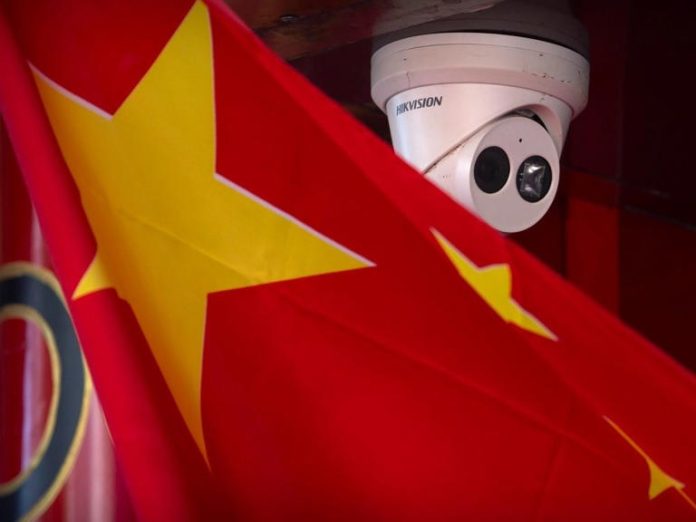When it comes to national security, it should be common sense not to depend on equipment originating from a foreign adversary.
A good lot of western countries appear to have this sense, which has caused a headache — and some bad PR — for Chinese security camera manufacturer Hikvision. The company, which created ethnicity-detection technology to help advance China’s Uyghur containment project/ genocide in the western province of Xinjiang, is the subject of a growing number of sanctions worldwide, except, of course, in Ottawa.
The European Union parliament removed its Hikvision cameras in 2021. In 2022, it was banned from the Danish capital region, and the United States prohibited federal dollars from being spent on its products and restricted them from being used in ways that could impact national security.
The United Kingdom joined the U.S. around that time, banning all new Hikvision installations on government sites; in 2023, this was expanded into a plan to remove all existing cameras (though execution has been sluggish , as they remain online at half of the government sites that originally had them installed). Australia announced it would be removing Hikvision from its defence sites in 2023, and Quebec banned the cameras from government sites outright that same year. This year, the Dutch announced a Hikvision phase-out in their capital.
Absent from this list of Hikvision skeptics is Canada, which remains quiet on the matter.
The reasons for giving Hikvision the cold shoulder are quite simple. One, it looks bad, and arguably does bad, to give business to a company aiding the concentration camp internment of minorities deep in the Eurasian Steppe. Two, Hikvision, like any company from China, has no legal way to prevent the government from peering through potential system keyholes and observing … well, anything. You can imagine the strategic advantage that comes with having access to countless security camera feeds of public and private property all over the world.
At home, at least, we have a sense of how widespread these potential peepholes are. In March, Bloc Québécois MP René Villemure asked an order paper question on the purchase and use of Hikvision equipment throughout the federal departments and agencies, and in May, he got answers, now filed in the Library of Parliament .
The documents show that Hikvision cameras are not ubiquitous throughout the government, but they are present in certain branches: Agriculture Canada, the Military Police Complaints Commission, Environment Canada, Parks Canada, Employment and Social Development Canada, Infrastructure Canada, Immigration Canada, the Canadian Space Agency, the National Research Council Canada, the Department of Justice, the National Battlefields Commission, some nationally run museums, VIA Rail Canada and Veterans Affairs Canada.
Several other departments reported using the cameras in the past: the Canadian Coast Guard College, the National Defence Ombudsman, the Bank of Canada, the Royal Canadian Mint, the Privy Council Office (PCO), the Canada Border Services Agency and Transport Canada.
So, while this country has been pretty quiet on the question of Hikvision — like it was on the question of Huawei, which was banned after a lengthy hum-haw period — we can glean that at least some departments consider the brand to present a problem, as pains have sometimes been taken to replace them. In the case of the PCO, which got rid of its Hikvision units in April, and Infrastructure Canada, which took “steps to decommission the camera and replace it” on March 14, the day Villemure submitted his question, the replacements appear to have been spurred by the Bloc. Perhaps that’s why the feds have been selling surplus Hikvision cameras online.
Still, it’s clear that there has never been a top-down order within the government to check for the equipment and remove it — even as peer countries have very publicly raised the alarm.
For a country whose Parliament appears to be compromised to some unknown degree by foreign interests, it’s unsurprising that suspected foreign spyware falls low on the priority list. Just one more thing to clean up in 2025, I suppose.









































